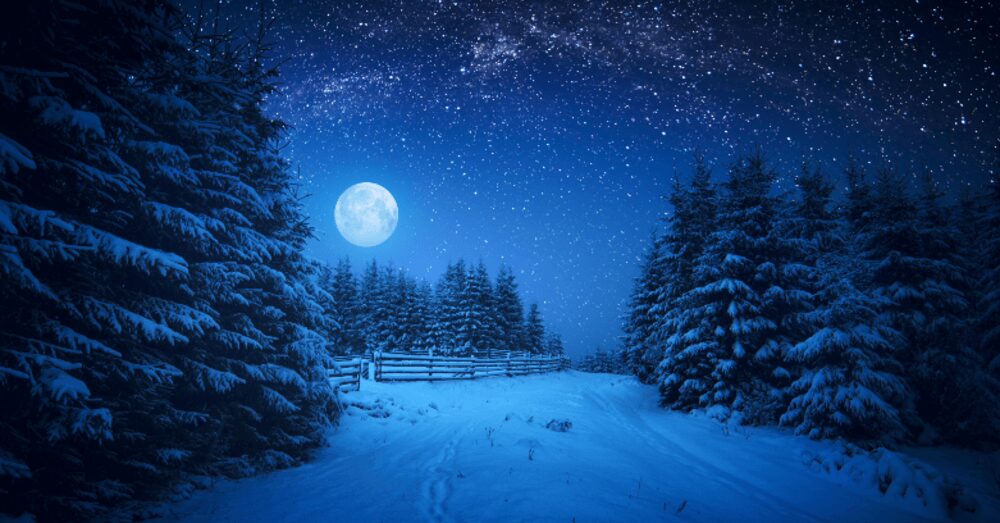Winter night hiking and stargazing can be some of the most enjoyable outdoor experiences of your life. Here’s why these are the nights for this activity.
Longer darkness plus cold, clear air makes winter perfect for stargazing hikes and snowshoe treks for star watching. Red-light headlamps preserve your night vision so you can actually see constellations when you click them off, unlike white beams that leave you blind for 20 minutes. The Orion constellation practically jumps out at you in winter skies, the Pleiades cluster of Seven Sisters looks like a tiny diamond dipper, and you can catch different Milky Way photography than what you’ll find in the summer skies.
Practice cold weather night hiking safety
Stick to trails you already know in daylight; this way, you’re less likely to get lost while on the trails. It’s also important to dress warmer than you think you need since you’ll be standing still while looking up at the beauty of the winter night sky. Be sure to tell someone where you’re going and when you plan to return. If you get lost or injured, you’re going to be susceptible to hypothermia much sooner during the cold winter nights than in summer. Knowing where you’re going and your intended return time can increase the likelihood of finding you sooner.
Do you need specialized equipment for winter night hiking and stargazing?
Modern phones can grab decent star shots in night mode. This means you don’t have to spend thousands on camera gear. Your smartphone astrophotography could be the envy of your friends and family, who might want to join you during your next adventure. The clean and clear air of winter is perfect for stargazing, making winter sky viewing conditions perfect for your time outdoors. Not to mention, you won’t have to deal with bugs and aren’t likely to notice that you’ve begun to sweat until you return home and take off your layers of clothing.
Earth’s direction helps improve your experience in winter
Warmer air filled with moisture and longer days contribute to shorter stargazing windows in the summer, but there’s another key factor. Winter night hiking and stargazing are much more spectacular because of the direction the Earth faces at night.
During the summer, the Northern Hemisphere is oriented toward the center of the Milky Way, causing celestial light pollution. If you find a dark enough area, you could see some amazing stars during the summer, but things change in the winter.
During the winter months, our hemisphere is oriented toward the edge of the galaxy, which allows more stars beyond the 300 billion in the Milky Way to become more visible. The celestial light pollution of the galaxy is gone, and you can see the brilliant lights of more individual stars than you would be able to see during the summer.
Winter camping brings an added element with stargazing
If you’ve ever met someone who has gone camping in the winter, or you’ve done it yourself, you probably have fond memories of the experience. While winter camping often comes with some learning experiences as well, you can enjoy winter night hiking and stargazing.
The best way to enjoy this experience is to choose a location that’s far away from the city and towns, ensuring it can be as dark as possible to avoid light pollution. An elevated spot is also good, and if you can locate a place without many trees in the way, you’ll get an amazing light show. When you think about these requirements, it becomes obvious why many of the most popular dark locations in the country are in the west, where there are wide open spaces and fewer trees in the way.
Winter camping tips for enjoyable night hiking and stargazing
If you want to see the winter skies in all their glory and plan a camping trip for the activity, you need to be prepared for the cold weather. Here are some tips to help you stay comfortable and safe.
- Check the weather ahead of time
- Choose the right campsite
- Dress in layers
- Dress for sleeping well (extra socks)
- Pack the right tent
- The right sleeping bag is key
- Insulate yourself from the ground
- Make sure you eat well and drink lots of water
- Use a hot water bottle in your sleeping bag
- Ensure you have enough electric or gas power for the trip
Get out there and enjoy some winter night hiking and stargazing. You can do it in your local area or head to a dark spot for some amazing views of the night sky.

